|
|
|
Книги издательства «Oxford University Press»
|
The contribution of the Ancient Greeks to modern western culture is incalculable. In the worlds of art, architecture, myth, literature, and philosophy, the world we live in would be unrecognizably different without the formative influence of Ancient Greek models. Ancient Greek civilization was defined by the city — in Greek, the polis, from which we derive politics. It is above all this feature of Greek civilization that has formed its most enduring legacy, spawning such key terms as aristocracy, oligarchy, tyranny and — last but by no means least — democracy. This stimulating Very Short Introduction to Ancient Greece takes the polis as its starting point. Paul Cartledge uses the history of eleven major Greek cities to illuminate the most important and informative themes in Ancient Greek history, from the first documented use of the Greek language around 1400 BCE, through the glories of the Classical and Hellenistic periods, to the foundation of the Byzantine empire in around CE 330. Covering everything from politics, trade, and travel to slavery, gender, religion, and philosophy, it provides the ideal concise introduction to the history and culture of this remarkable civilization that helped give birth to the world as we know it. |
|
There are many stories we can tell about the past, and we are not, perhaps, as free as we might imagine in our choice of which stories to tell, or where those stories end. John Arnold's Very Short Introduction is a stimulating essay about how we study and understand history. The book begins by inviting us to think about various questions provoked by our investigation of history, and explores the ways these questions have been answered in the past. Concepts such as causation, interpretation, and periodization, are introduced by means of concrete examples of how historians work, giving the reader a sense of the excitement of discovering not only the past, but also ourselves. |
|
This brief history of America will span the earliest migrations to the present, reflecting Paul S. Boyer's interests in social, intellectual, and cultural history, including popular culture and religion. It will reflect his personal view of American history, in which a sense of paradox and irony loom large. While noting positive achievements — political, economic, social, and cultural — he will also discuss the United States's failures to live up to its oft-stated ideals; although America has figured in the world's imagination (and its own self-image) as a land of opportunity offering liberty and justice for all, the reality has often fallen short. For example, the establishment of the North American colonies had very different meanings for colonists from the British Isles and Europe, for Native peoples, and for enslaved Africans brought against their will. The late nineteenth century saw not only impressive industrial expansion and the creation of vast fortunes but also appalling conditions in urban-immigrant slums and a degraded, exploited labor force. The twentieth-century emergence of a suburban society of consumer abundance meant a better life for many and laid the groundwork for impressive cultural creativity, yet left behind crime-ridden inner cities and spawned a stultifying mass culture. The immigrants who have renewed and revitalized the nation have also stirred hostility and resentment. While American popular culture has demonstrated global appeal, the projection of U.S. military power abroad, from the Philippines early in the twentieth century to Iraq early in the twenty-first, has sometimes failed in its purpose and damaged the nation's international standing. Although this book will not be a muckraking expose or anachronistic moral tract, neither will it be a celebratory panegyric or a bland recital of facts. |
|
The Antarctic is one the most hostile natural environments in the world. It is an extraordinary physical space, which changes significantly in shape and size with the passing of the seasons. Politically, it is unique as it contains one of the few areas of continental space not claimed by any nation-state. Scientifically, the continental ice sheet has provided us with vital evidence about the Earth's past climate. In this Very Short Introduction, Klaus Dodds provides a modern account of Antarctica, highlighting the main issues facing the continent today. Looking at how the Antarctic has been explored and represented in the last hundred years, Dodds considers the main exploratory and scientific achievements of the region. He explains how processes such as globalization mean that the Antarctic is increasingly involved in a wider circuit of ideas, goods, people, trade, and governance — all of which have an impact on the future of the region. |
|
Since the dawn of human civilization, forests have provided us with food, resources, and energy. The history of human development is also one of forest loss and transformation, and yet even in our increasingly urbanized societies we remain surprisingly dependent on forests for a wide range of goods and services. Moreover, forests still retain a remarkable hold on our environmental values. In an era of continuing tropical deforestation and temperate forest resurgence, and in the midst of uncertainties of climate and land use changes, it is more important than ever to understand what forests are, how they contribute to our livelihoods, and how they underpin our cultural histories and futures. In this Very Short Introduction Jaboury Ghazoul explores our contrasting interactions with forests, as well as their origins, dynamics, and the range of goods and services they provide to human society. Ghazoul concludes with an examination of the recent history of deforestation, transitions to reforestation, and the future outlook for forests particularly in the context of expected climate change. ABOUT THE SERIES: The Very Short Introductions series from Oxford University Press contains hundreds of titles in almost every subject area. These pocket-sized books are the perfect way to get ahead in a new subject quickly. Our expert authors combine facts, analysis, perspective, new ideas, and enthusiasm to make interesting and challenging topics highly readable. |
|
This book is intended to capture the interest of anyone who has been attracted to Russian culture through the greats of Russian literature, either through the texts themselves, or encountering them in the cinema, or opera. Rather than a conventional chronology of Russian literature, the book will explore the place and importance of literature of all sorts in Russian culture. How and when did a Russian national literature come into being? What shaped its creation? How have the Russians regarded their literary language? The book will uses the figure of Pushkin, 'the Russian Shakespeare' as a recurring example as his work influenced every Russian writer who came after hime, whether poets or novelists. It will look at such questions as why Russian writers are venerated, how they've been interpreted inside Russia and beyond, and the influences of such things as the folk tale tradition, orthodox religion, and the West. |
|
Michael Faraday's celebrated series of lectures, The Chemical History of a Candle, turned into one of the most successful science books ever published and was a classic work of Victorian popular science. They also reflect how Faraday, the bookbinder's apprentice turned scientist, was a remarkable communicator of science. First published in 1861 they have remained continuously in print ever since. Covering a wide range of basic scientific knowledge, much of which still has relevance today, The Chemical History of a Candle draws out the science behind the candle flame; a familiar yet complex example of combustion, and a source of fascination as much today as it was then. Timed to mark the 150th anniversary of the first publication, Frank James presents a new edition of the lectures, which, for the first time, includes a facsimile of Faraday's original handwritten lecture notes, never before published. Including an introduction from Frank James this new edition provides the historical context and background to his lectures, and to Faraday himself. |

|
Loathsomeness waits and dreams in the deep, and decay spreads over the tottering cities of men. A time will come — but I must not and cannot think! H. P. Lovecraft (1890-1937) was a reclusive scribbler of horror stories for the American pulp magazines that specialized in Gothic and science fiction in the interwar years. He often published in Weird Tales and has since become the key figure in the slippery genre of weird fiction. Lovecraft developed an extraordinary vision of feeble men driven to the edge of sanity by glimpses of malign beings that have survived from human prehistory or by malevolent extra-terrestrial visitations. The ornate language of his stories builds towards grotesque moments of revelation, quite unlike any other writer. This new selection brings together nine of his classic tales, focusing on the Cthulhu Mythos, a cycle of stories that develops the mythology of the Old Ones, the monstrous creatures who predate human life on earth. It includes the Introduction from Lovecraft's critical essay, Supernatural Horror in Literature, in which he gave his own important definition of weird fiction. In a fascinating contextual introduction, Roger Luckhurst gives Lovecraft the attention he deserves as a writer who used pulp fiction to explore a remarkable philosophy that shockingly dethrones the mastery of man. |
|
This workbook closely matches the student's book layout. Listening tracks are available to download from the student's site. The book offers ready-made extra lessons which introduce students to classic pieces of English literature. |
|
This workbook closely matches the student's book layout. Listening tracks are available to download from the student's site. The book offers ready-made extra lessons which introduce students to classic pieces of English literature. |
|
'Insight' offers ready-made extra lessons which introduce students to classic pieces of English literature. There is extra support and practice of the grammar from the student's book in the grammar reference section. |
|
The flexible English course that features motivating material from pop culture to interesting world facts. |
|
The flexible English course that features motivating material from pop culture to interesting world facts. |
|
The flexible English course that features motivating material from pop culture to interesting world facts. |
|
The flexible English course that features motivating material from pop culture to interesting world facts. |
|